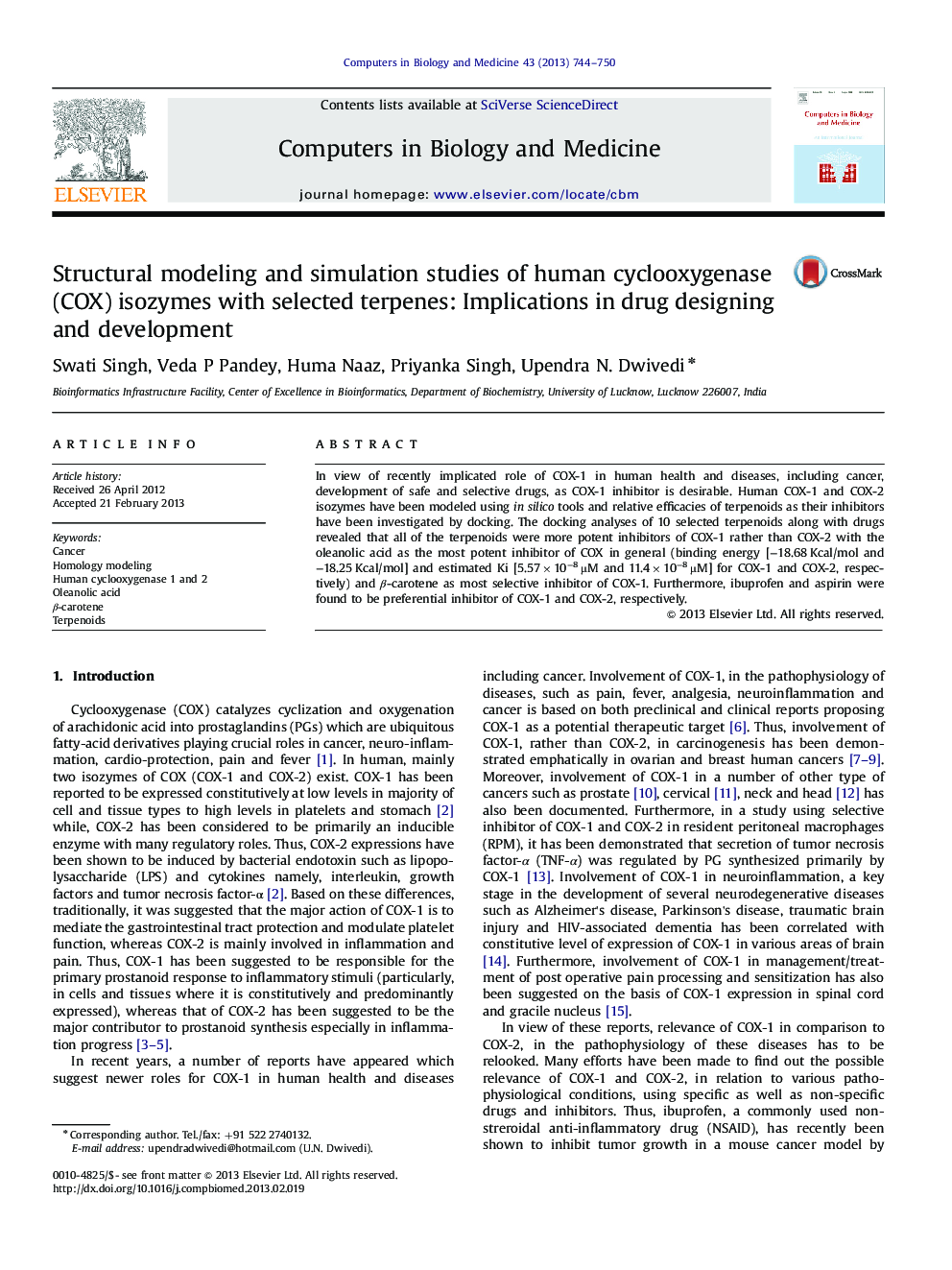| Article ID | Journal | Published Year | Pages | File Type |
|---|---|---|---|---|
| 505099 | Computers in Biology and Medicine | 2013 | 7 Pages |
In view of recently implicated role of COX-1 in human health and diseases, including cancer, development of safe and selective drugs, as COX-1 inhibitor is desirable. Human COX-1 and COX-2 isozymes have been modeled using in silico tools and relative efficacies of terpenoids as their inhibitors have been investigated by docking. The docking analyses of 10 selected terpenoids along with drugs revealed that all of the terpenoids were more potent inhibitors of COX-1 rather than COX-2 with the oleanolic acid as the most potent inhibitor of COX in general (binding energy [−18.68 Kcal/mol and −18.25 Kcal/mol] and estimated Ki [5.57×10−8 µM and 11.4×10−8 µM] for COX-1 and COX-2, respectively) and β-carotene as most selective inhibitor of COX-1. Furthermore, ibuprofen and aspirin were found to be preferential inhibitor of COX-1 and COX-2, respectively.
